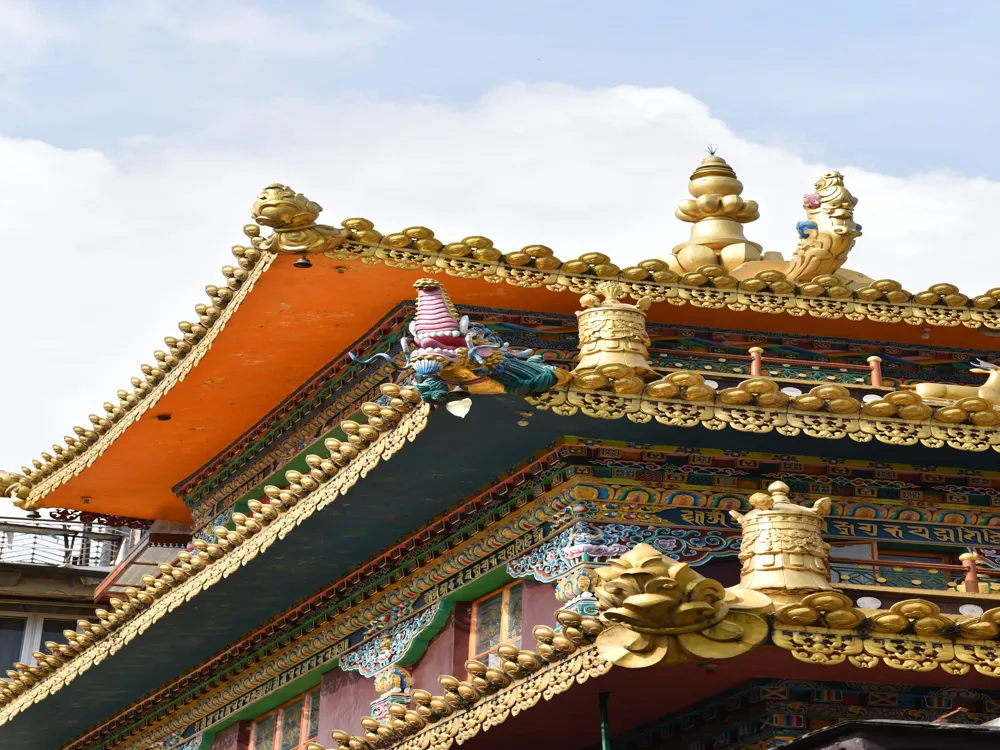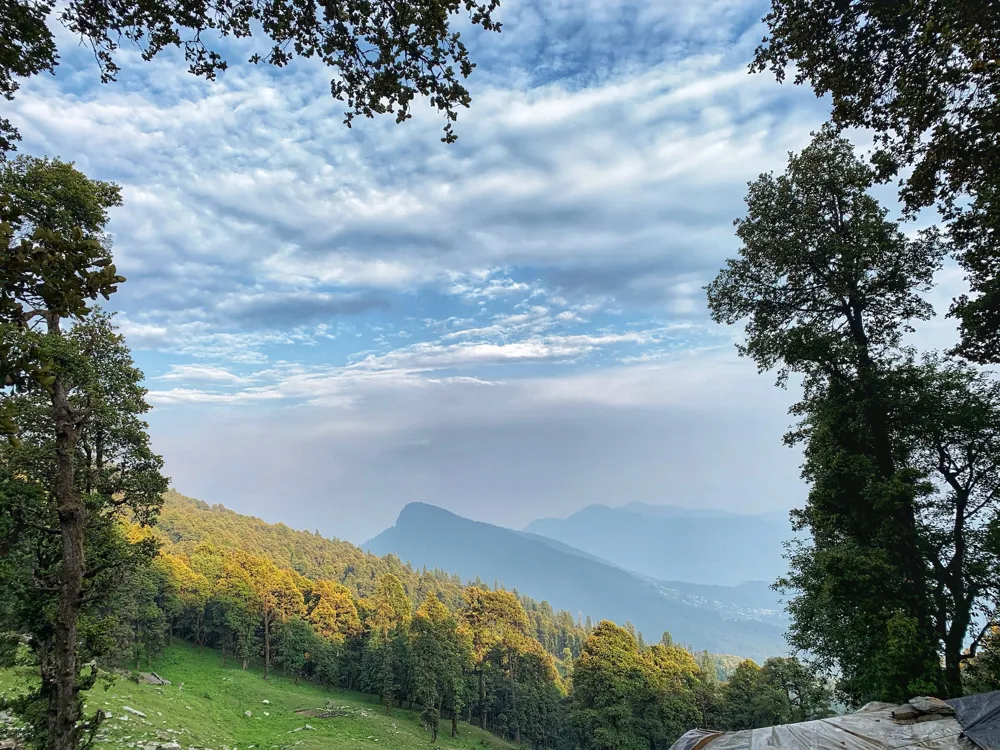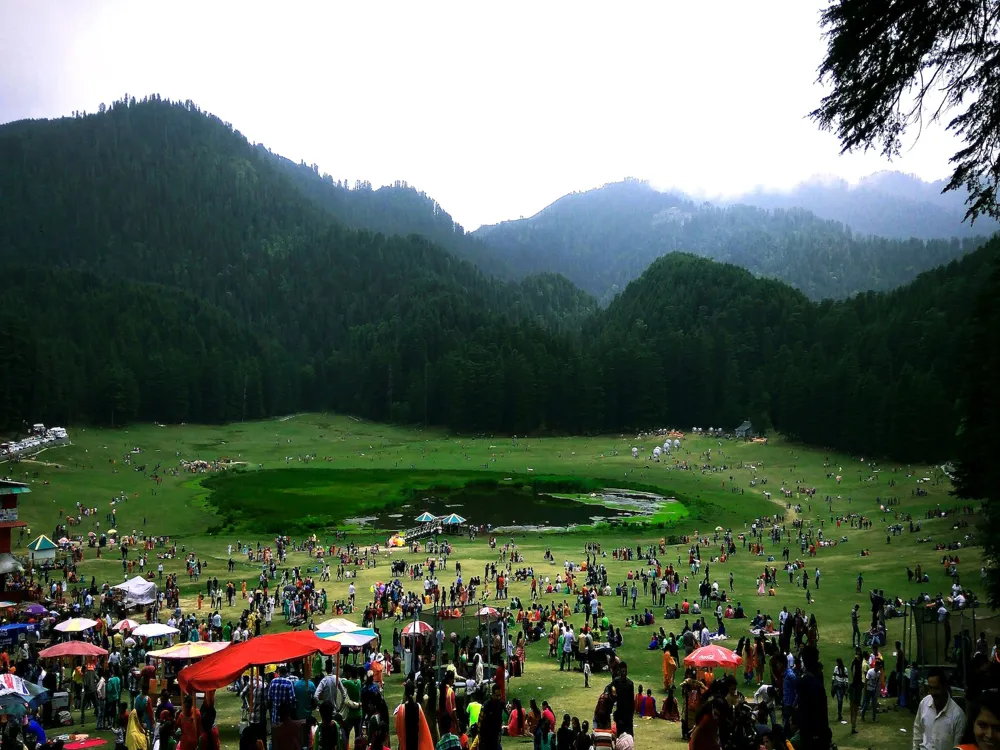Deer Park Institute, nestled in the serene town of Bir in Himachal Pradesh, is a unique center for the study of classical Indian wisdom traditions. Established with the vision of reviving ancient Indian learning, the institute offers a tranquil environment for introspection and learning. It's not just an educational hub but a confluence of cultural and spiritual activities, attracting learners and seekers from across the globe. The Institute, named after the famous Deer Park in Sarnath where Buddha first taught the Dharma, is a testament to the rich heritage of Indian philosophy. The courses offered range from Buddhist philosophy, meditation, yoga, to art and culture. This diversity in learning is matched by the diversity of its students, making it a melting pot of ideas and traditions. Spread over a lush green landscape, Deer Park Institute is more than an educational institution; it's a journey into the self. The place offers a unique blend of traditional learning with modern pedagogical methods, making ancient wisdom accessible and relevant to the contemporary world. The serene surroundings of Bir, with its breathtaking views and tranquil atmosphere, provide the perfect backdrop for deep contemplation and learning. The architecture of Deer Park Institute is a harmonious blend of traditional Himalayan and modern styles, symbolizing the institute's ethos of bridging the ancient with the contemporary. The main building, inspired by the monastic architecture of Tibetan Buddhism, stands majestically against the backdrop of the Dhauladhar range. The Institute's design pays homage to the local architecture, using locally sourced materials and employing traditional construction techniques. This not only ensures sustainability but also adds to the aesthetic appeal of the campus. The intricate carvings, vibrant Thangka paintings, and Buddhist symbols adorning the walls of the institute are not just decorative elements but are imbued with deep philosophical meanings. Special attention has been given to creating spaces that inspire learning and meditation. The meditation hall, with its serene ambiance, invites introspection and spiritual growth. The library, stocked with ancient texts and modern works, is a treasure trove for scholars and students alike. The layout of the institute encourages interaction and community living, fostering a sense of belonging among the residents. When planning a visit to Deer Park Institute, consider the institute's academic calendar to participate in ongoing courses or workshops. It's advisable to book accommodation in advance, either within the institute or in nearby guesthouses. The weather in Bir can be quite variable, so packing accordingly is essential. Deer Park Institute offers a variety of activities, including meditation sessions, yoga classes, and cultural workshops. Visitors are encouraged to engage in these activities to fully experience the institute's offerings. Respecting the institute's ethos and participating in communal activities like dining and cleaning is also a part of the experience. Bir is not just about the institute. The town is famous for its paragliding spots, monasteries, and cafes. Exploring the local culture, trying Tibetan cuisine, and interacting with the locals can enrich your experience. Deer Park Institute is accessible via various modes of transport. The nearest airport is Dharamshala's Gaggal Airport, about 68 km away. Visitors can also reach Bir by train, with the nearest railway station being in Pathankot, 142 km away. Regular bus services from major cities like Delhi, Chandigarh, and Manali to Bir are also available. Once in Bir, local taxis can be hired to reach the institute. Read More:Overview of Deer Park Institute, Bir, Himachal Pradesh
Architecture of Deer Park Institute
Tips When Visiting Deer Park Institute
Planning Your Visit
Engaging in Activities
Exploring Bir
How To Reach Deer Park Institute
Deer Park Institute
Bir
Himachal Pradesh
₹ 6,250 onwards
View bir Packages
Bir Travel Packages
View All Packages For Bir
Top Hotel Collections for Bir

Private Pool

Luxury Hotels

5-Star Hotels

Pet Friendly
Top Hotels Near Bir
Other Top Ranking Places In Bir
View All Places To Visit In bir
View bir Packages
Bir Travel Packages
View All Packages For Bir
Top Hotel Collections for Bir

Private Pool

Luxury Hotels

5-Star Hotels

Pet Friendly






















